Unbound by silence closeting his early years, first chair of City College LGBT Department offered students a symbol of support
Jack Collins found his calling in 1980, when he started teaching “Gay Literature” at City College of San Francisco.
“I had come out of the closet in 1974 while doing graduate studies in comparative literature at the University of Cambridge,” he said, “and I couldn’t think of anything better than teaching the literature I loved to students I shared so much with.”
The class, developed two years before Collins came out about his sexuality, was one of the first gay literature courses in the country. Its creator was going on sabbatical. Within nine years, City College would establish the first Gay and Lesbian Studies Department in the U.S. – with Collins as its chair.
After joining City College, he and other instructors expanded gay and lesbian courses, which were dispersed throughout several departments. They added a campus in the Castro at one of the middle schools, offering evening classes. Within two years, 2,000 students a week were attending, he said. A new film class brought in 100 students. “That really impressed the college,” Collins said.
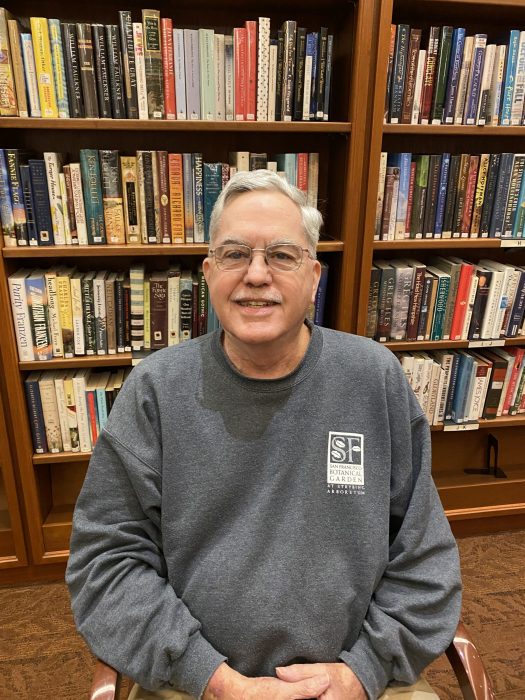
The popularity of those classes, and the support of a gay board member, convinced City College to coalesce gay and lesbian studies into their own department. As part of the California Higher Education system, Collins said, “any state university or community college could replicate our program.” Now the department of LGBTQI Studies, it offers the option an associate’s degree that fulfills a minor at University of California, and California State University schools and other colleges and universities.
As these changes were unfolding, Collins and other instructors came out to their students. “It was very important to me that gay and lesbian kids knew they had a supportive person in front of the room,” he said. “I would tease my straight students that ‘God loved them, too!’ Everyone laughed.”
‘Suddenly, it wasn’t OK’
Now 73, he lives in his own apartment in The Sequoias, an assisted living complex on Post Street. “I enjoy the friendships of many interesting people I meet here,” he said.
Life as a gay man in the era of AIDS was not easy. Collins’ life partner, whom he met when he first came out, contracted the human immunodeficiency virus in 1990. Collins took care of Marty, a physician, until his death five years later. “What kept me going was needing to care for our two puppies,” he said.
Collins realized even before his teens that he was “different in my sexuality,” he said. “Boys used to fool around with each other, and it was fun and OK, and suddenly it wasn’t when boys went on to girls.”
Boys could tell when other boys weren’t like them, he said, so he became more circumspect to protect himself. “I dated girls in high school and was popular because I’d take them into New York City for a movie.”
Collins knew his way around New York City because he went to Regis High School on Manhattan’s upper East Side, which was more than 30 miles south of his home in Mt. Kisco, N.Y. “When I went to Regis High, Dad drove me in my first year when he worked in the Bronx, and then I rode on the Grand Central Railroad train to Grand Central Terminal by myself for the rest of high school.” He described his parents as being “easy” with him, allowing him freedom to become independent.
Collins grew up in a large Catholic family, “the oldest of eight and surrogate parent for the youngest five,” he said. His mother had worked for the ration board during WWII and went back to work as the office manager of a middle school when her youngest was old enough. His father worked in a general store, as a foreman of a steel factory in the Bronx and wound up owning a local liquor store.
Collins was not openly gay at the time. “The girls in high school realized I was gay, but it was all unspoken,” he said.
Medieval studies and politics
Regis, a tuition-free Catholic school for students with high IQs and good entrance exam scores, set him up for a scholarly future that culminated with a doctorate in Comparative Literature from Stanford University. The curriculum included science, Latin and Greek. “The advanced curriculum at Regis was so arduous, they discontinued it a few years after I graduated,” said Collins. “It made my college work easy.”
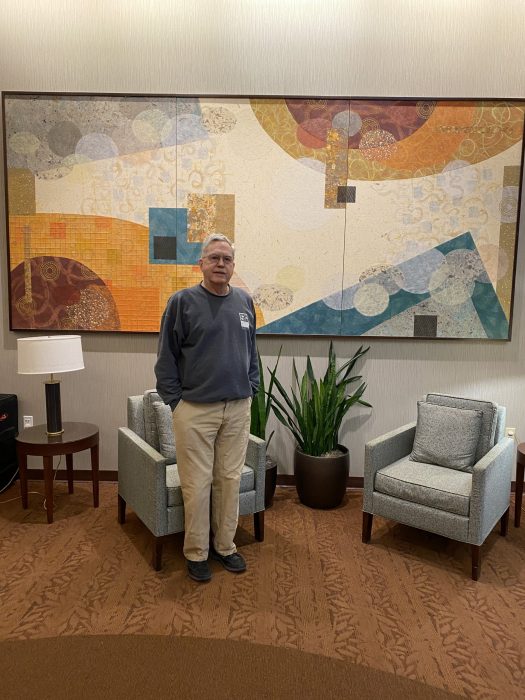
At Columbia University, Collins created his own major – Medieval Studies, emphasizing history, art, Latin and English. “I got to go overseas in my junior year and look at Medieval manuscripts at the University of Cambridge and at the British Museum,” he said.
His overseas research won him a Kellett Fellowship that covered two years of graduate study at Cambridge. But he wanted to go to California. “So, I convinced them to let me start my graduate studies at Stanford,” said Collins. He moved to the Bay Area with a college friend and attended Stanford from 1970 to 1972. He went to Cambridge for another two years, then came back to Stanford and completed his doctorate.
It was at Columbia that he got his first taste of political activism. It was 1968 and students were protesting the war in Vietnam and an allegedly segregated gymnasium to be constructed in nearby Morningside Park. “Columbia was as active as Berkeley and San Francisco State,” Collins said.
But it was his knowledge of Medieval literature that landed him his first job. In a visit to a Bay Area rare books store, he impressed the owner by identifying a rare Medieval Bible kept in the store’s safe. So, in his last year at Stanford, Collins worked 30 hours at John Howell Books, creating medical, history and other catalogues. Once he started teaching, he became a consultant.
One of his catalogues was of gay and lesbian books printed privately, because of censorship. “Gertrude Stein is one example of a lesbian author who had to privately print her writings,” Collin said. “These privately printed gay and lesbian books had become quite valuable.”
Now that gay and lesbian books are part of mainstream literature, Collins said, “I think it’s wonderful that younger gay and lesbian people don’t have to grow up in the silence I grew up with.”



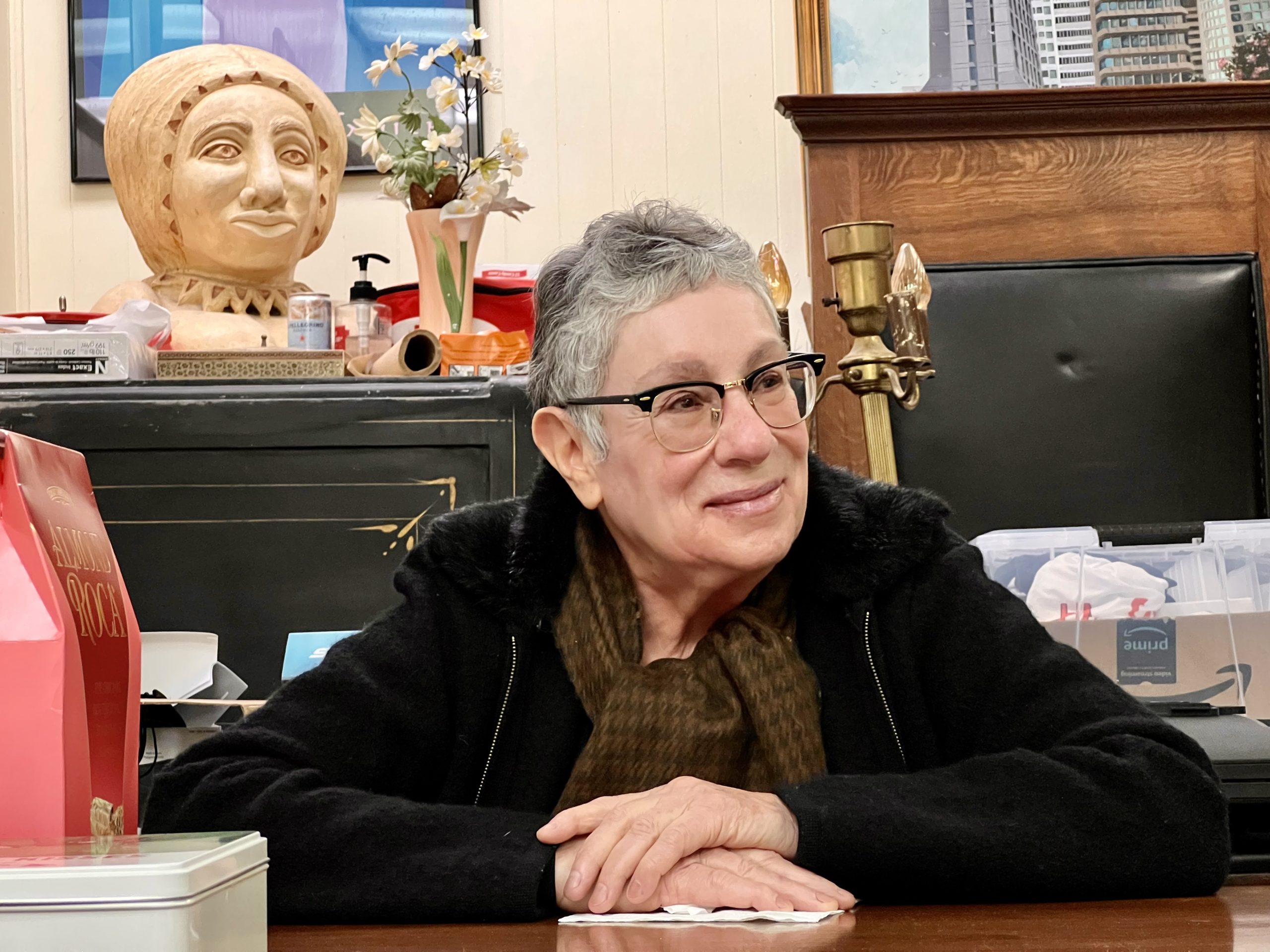
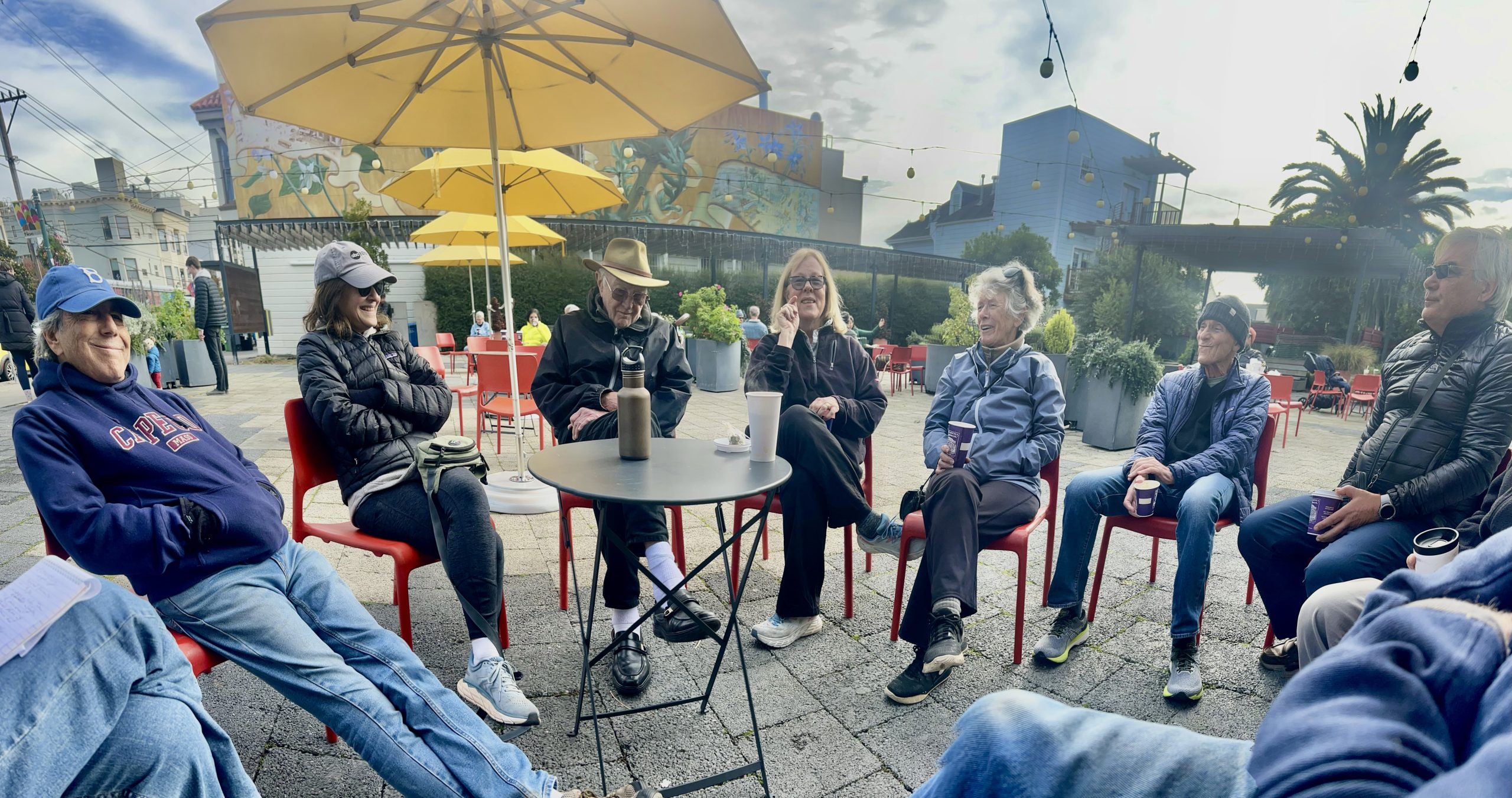
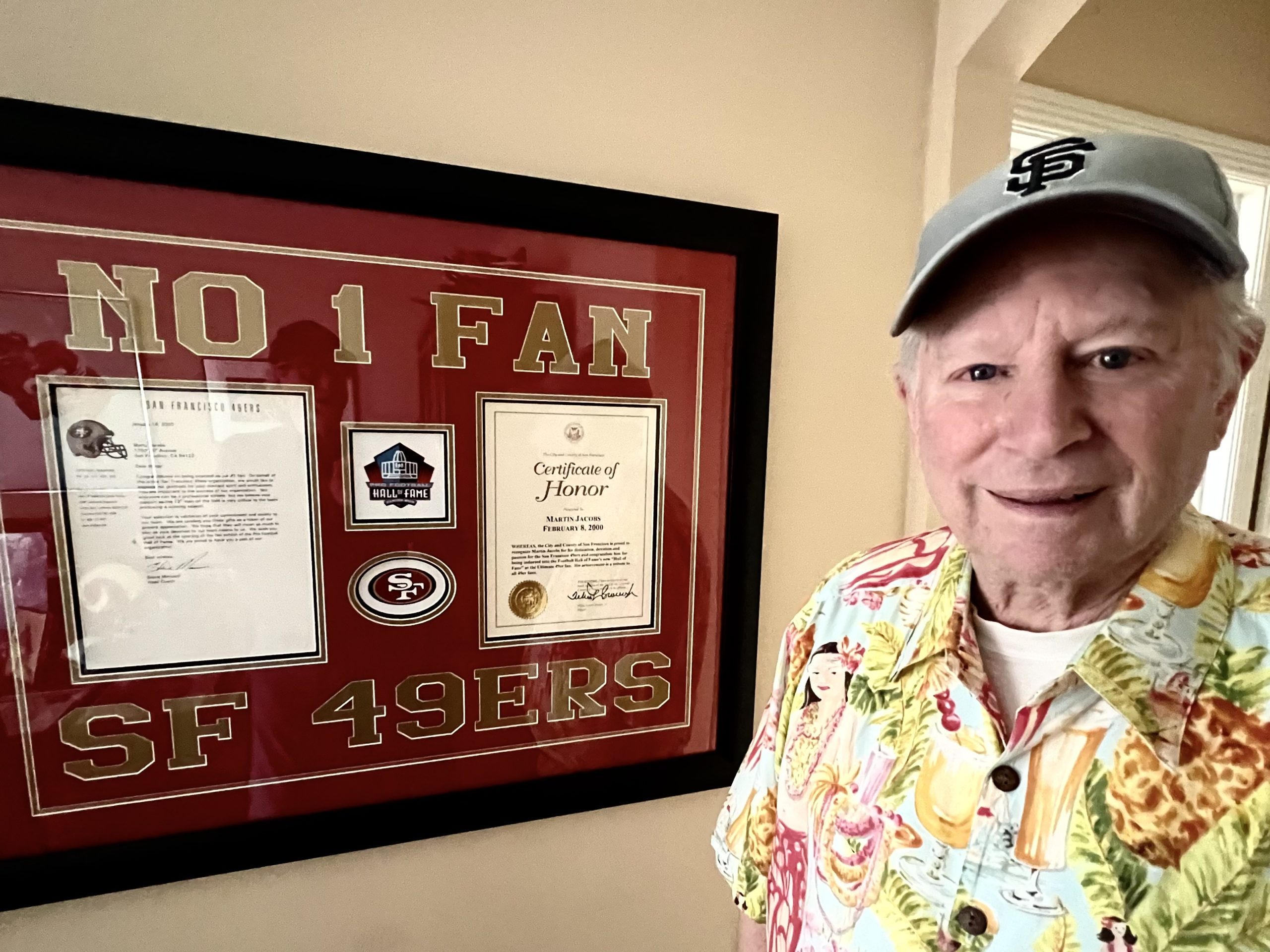
Abdul Jabbar
I am very happy to read about Jack's accomplishments and legacy. I remember him fondly as an esteemed colleague. How can I get in touch with him?
John Edmiston
This is a great story, and a needed perspective. Thanks for writing!